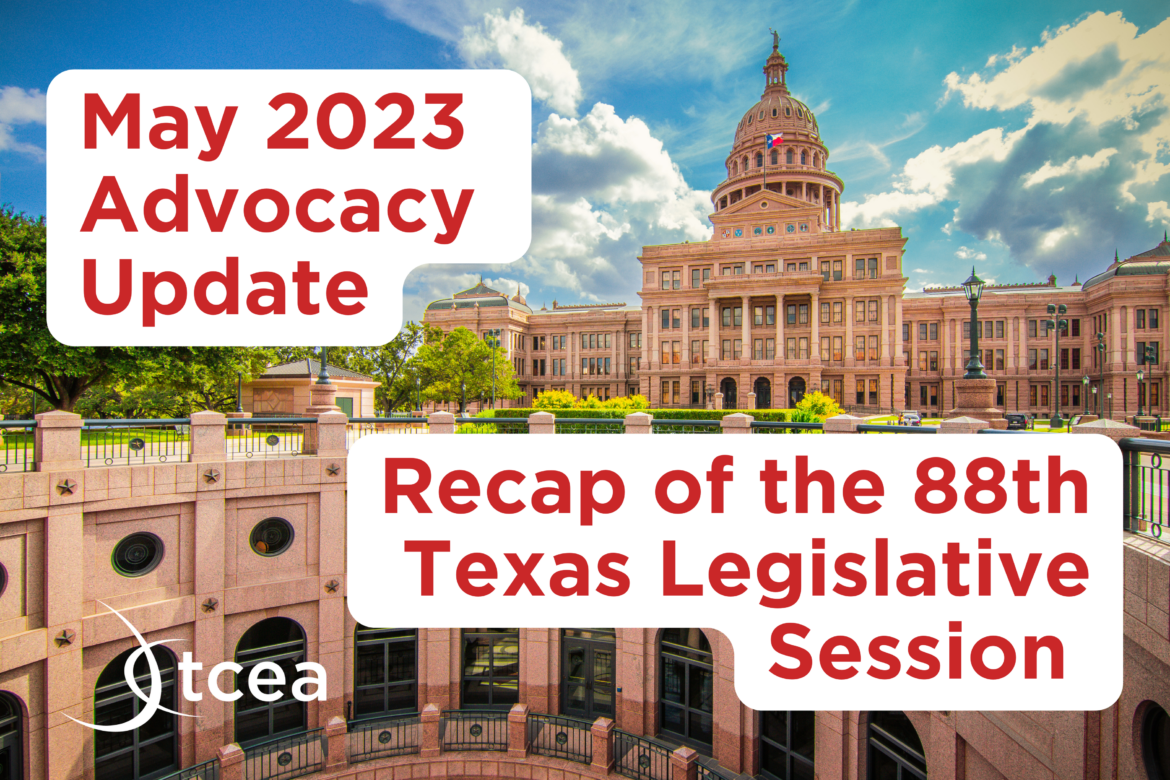The Texas Computer Education Association (TCEA) has long been an advocate for the incorporation of technology in education, expanding access to broadband, digital and virtual learning, and increased cybersecurity and technology infrastructure. While we wait for a pending special session(s) on additional school funding, the 88th Texas Legislative Session concluded on Monday, May 29. Let’s take a look at where things ended as it relates to TCEA’s advocacy efforts.
Broadband Access
A notable achievement in access to broadband was the passage of HB 9 by Rep. Trent Ashby, which establishes the Texas Broadband Infrastructure Fund with $230,200,000 to ensure widespread access to reliable high-speed broadband. Equally instrumental is SB 1238 by Sen. Robert Nichols, which permits the State Broadband Development Office to provide financial incentives for expanding broadband service access, including those critical to remote learning and in equipment education.
Technology and Instructional Needs
As part of the State Budget (HB 1), the following funding was passed:
- Just over $1 billion for the Technology and Instructional Materials Allotment (TIMA)
- $56 million for school district cybersecurity
- $49.4 million for virtual education
- $10 million for computer science professional development
- $12 million for interactive online learning models
- $500,000 for a digital teaching micro-credential program
Digital and Virtual Learning
Our work in digital and virtual learning saw mixed results. HB 681/SB 1861 by Rep. Keith Bell and Sen. Paul Bettencourt would have:
- Enabled public school districts and charter schools to offer virtual and hybrid options to respond effectively to family and student demand for approaches that fit learners’ unique needs.
- Created adequate and equitable funding mechanisms and an authorization process to open new virtual and hybrid campuses.
- Ensured access to advanced coursework in the face of longstanding challenges like local course availability and teacher shortages through continued access to individual virtual courses.
- Incorporated the many unanimous recommendations from the Texas Virtual School Commission.
Unfortunately, political forces stalled the bill in the last week of the regular session. TCEA is hopeful for its inclusion in a future special session.
Micro-Credentials for Educators
Additionally, HB 4358 by Rep. Steve Allison would have established a digital teaching micro-credential for educators, recognizing their expertise in virtual and blended education. It received significant support in the House and Senate and was even added to major bills such as SB 9 and HB 100. However, the language was never adopted due to politics in the last week of the regular session; thus, necessitating further action in a future special session.
Digital Devices, Materials, and Textbooks
HB 18 passed by Rep. Shelby Slawson proposed standards for permissible electronic devices and software applications in schools that TEA will implement. TCEA remained neutral given its political complexity. Similarly, HB 1605 by Rep. Brad Buckley proposed a new unified process for instructional materials reviews, including a supplemental funding formula and an additional printing fund. TEA will be required to ensure free open-source digital textbooks are available to districts.
K-8 Technology
In any legislative session, there are also bills that would negatively impact technology integration in classrooms that TCEA opposed. For instance, HB 5104 sought to ban electronic devices and digital instruction for K-8 grades, and SB 2141 intended to eliminate the technology applications curriculum for K-5 grades. Neither of these two measures was ultimately passed.
Special Session(s)
The 88th Texas Legislative Session saw important strides and setbacks, and TCEA remains dedicated to ensuring technology’s constructive role in education. We appreciate your continued support and look forward to additional progress in the impending special session(s). Stay tuned for more advocacy updates!

